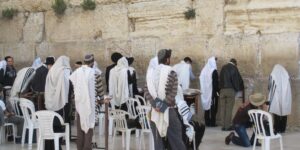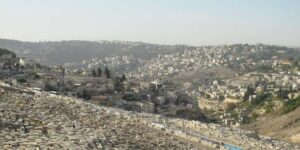Egyptian Court Bans Muslim Brotherhood
An Egyptian court on Monday banned deposed President Mohammed Morsi’s Muslim Brotherhood and ordered its funds seized, a crippling strike in the campaign to crush the Islamist movement.
The case was brought by a lawyer from the leftist Tagammu party on the grounds of protecting Egyptians from violence.
It was not stated if he was acting at the instigation of the army-backed government, which has launched one of the fiercest crackdowns against the group in decades.
“The court bans the activities of the Muslim Brotherhood organization and its non-governmental organization and all the activities that it participates in and any organization derived from it,” presiding Judge Mohammed al-Sayed said in a ruling.
He also ordered the government to seize the Brotherhood’s funds and administer its frozen assets.
The ruling did not specifically mention the Brotherhood’s political wing, the Freedom and Justice Party. But the lawyer who brought the case, Mahmoud Abdullah, told state television that the party was also banned.
The movement has seen hundreds of its members killed and thousands arrested since the army overthrew Morsi in July. The ruling may force the Brotherhood to go underground, especially as public support for it has dropped.
The court’s decision, which can be appealed, raises the possibility that some Brotherhood members will lose faith in peaceful resistance and take up arms against the government.
“How the Brotherhood responds to this verdict depends on the individual decisions of rank-and-file members, because the broader structure has largely ceased to function,” said Eric Trager, an expert on the Muslim Brotherhood at the Washington Institute for Near East Policy.
Mohamed Ali, a Brotherhood official, said: “The ruling will not prevent us from continuing our peaceful resistance to the coup.”
The Brotherhood emerged from the shadows to win parliamentary and presidential elections after veteran autocrat Hosni Mubarak was overthrown in 2011.
But many Egyptians became disillusioned with Morsi after he gave himself sweeping powers and mismanaged the economy, taking to the streets in protest and prompting the army move.
Following Mursi’s overthrow, the Brotherhood organized rallies demanding his reinstatement, bringing on the fiercest campaign against it by security forces in decades.
The government accuses the Brotherhood of inciting violence and terrorism and has put forward its own plan for new elections. Egypt’s state and private media now portray the Brotherhood as a terrorist group and an enemy of the state.
Security forces killed hundreds of its supporters in raids on their Cairo protest camps in August and rounded up thousands more, including many leaders, among them Mursi.
The Brotherhood has been forced to hold smaller protests to avoid antagonizing security forces. Brotherhood lawyers, who have been trying to get members out of jail, say they too fear arrest.
Brotherhood veterans said it is increasingly difficult to persuade young members, who are likely to be infuriated by the court decision, to resist using force against the state.
Human rights activist Gamal Eid questioned the wisdom of the court’s decision, saying it could backfire.
“With an eye to the future, you will see the ruling is wrong. It will make them work in the darkness,” he said on social media. “It will make the Brotherhood continue practicing violence and hate speeches.”
The Brotherhood has proven resilient throughout its 85-year history.
Egypt’s army rulers formally dissolved the Brotherhood in 1954, and it has survived repression under various strongmen, relying on its funds and social charity networks to become the country’s biggest political party.
“The ruling will not prevent us from continuing our peaceful resistance to the coup,” said Mohamed Ali, a Brotherhood official.
Attacks by militants have been rising since the army overthrew Mursi. Most of the violence has taken place in the Sinai Peninsula near the border with Israel and the Hamas-run Gaza Strip.
Al-Qaida-inspired militants based in the Sinai have attacked security forces in the area almost daily. The army has responded with air and ground attacks.
A failed suicide bombing against the interior minister on Sept. 5 and attacks on police in Cairo have raised fears that militant violence is taking hold beyond the Sinai.
The attacks have revived memories of the 1990s, when an Islamist insurgency featuring high-profile attacks on Westerners and senior government officials ravaged the tourist industry, one of the pillars of the economy.
Last week, Egyptian security forces stormed the town of Kerdasa near Cairo to flush out armed Morsi supporters.
© 2013 Thomson Reuters. All rights reserved.







































